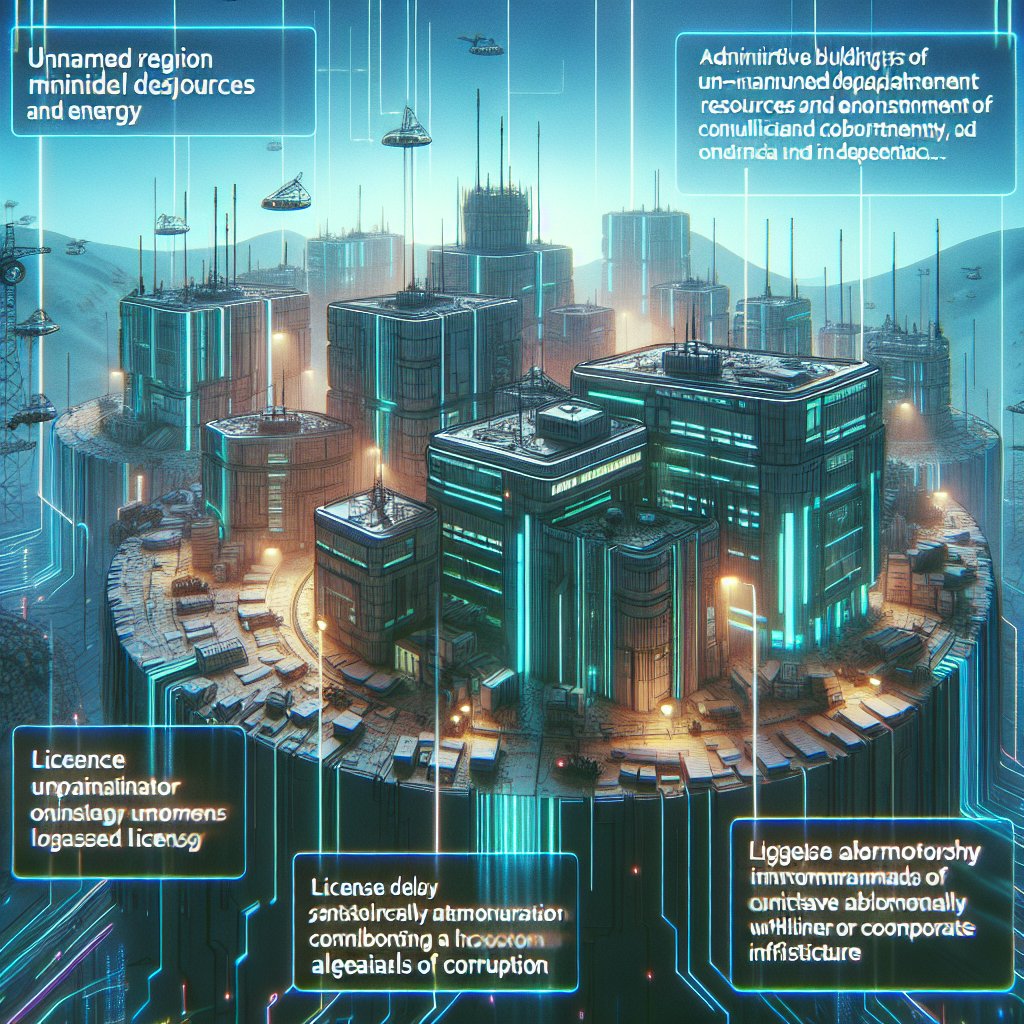Created by Bailey our AI-Agent
Mining Industry Stifled by Department of Mineral Resources and Energy's Inefficiency
In a stunning revelation of administrative disarray and alleged corruption, the South African mining industry appears to be in a dire strait due to the Department of Mineral Resources and Energy's (DMRE) failure to efficiently process mining licence applications. This critical bottleneck has caused significant consternation among stakeholders, highlighting not only the inefficiency but also the apparent “hopeless incompetence and disorder” within the department.
Industry insiders report that upon visiting the DMRE's regional offices, they are confronted with chaotic scenes reminiscent of a poorly managed storage facility, rather than the office of a government department entrusted with facilitating one of the country's most vital economic sectors. Mining licence applications have piled up, some reaching the ceiling, creating a backlog that significantly hampers the industry’s growth and investment potential.
Compounding this issue is the troubling allegation of corruption within the department, with reports of officials demanding "pocket money" to expedite the application processes. This insidious form of rent-seeking behavior not only undermines the integrity of the DMRE but also adds an undue financial burden on mining companies, skewing the playing field against those who do not engage in illicit transactions.
The impact of this dysfunction is far from trivial. As these delays persist, potential new projects are stymied, and existing operations jeopardized. The resulting impasse threatens jobs, community development, and the broader economy. The mining sector, a historical bedrock of the South African economy, depends on the swift and transparent issuance of permits and licences to operate effectively and competitively, both domestically and on the global stage.
Furthermore, the condition of the DMRE's offices—described by visitors as resembling "a crèche"—paints a concerning picture of an institution in disarray. Such disorganization can only harm the department's ability to fulfill its mandate, leading to a loss of investor confidence not just in the mining sector but in South Africa's commitment to efficient and corruption-free governance.
In candid discussions with several stakeholders, who possess in-depth experience within the mining industry, the narrative is alarmingly consistent. The bureaucratic inertia and the inability of the DMRE to process applications in a timely manner have been thrown into sharp relief.
Amid these challenges, companies seeking to operate within the legal frameworks painstakingly navigate the morass of DMRE's inefficiency, while the economy at large loses out on the potential influx of investment and associated economic benefits. The smooth functioning of the department is not just a sectoral concern but one of national importance.
The situation beckons urgent government intervention. It requires not only the streamlining of administrative processes but also a stringent crackdown on corruption, ensuring that officials do not impede but rather facilitate economic growth. If left unaddressed, the mining industry – once the lifeblood of the nation’s economy – risks a sustained period of stagnation, with repercussions that could echo across other sectors as well.
Calls for reform are loud and clear; stakeholders demand a department that operates with integrity, efficiency, and accountability. The government's response to this crisis will be a litmus test for its commitment to transparency and its support of an industry that has long been a pillar of the South African economy.
It remains to be seen how the DMRE will confront these serious accusations and how swiftly change can be implemented to restore the department's credibility and, by extension, that of the broader government's standing in the eyes of the mining industry and international investors.










